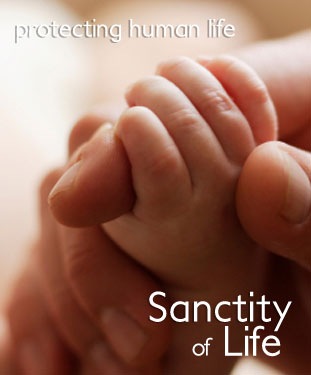Four decades ago, the Supreme Court of the United States handed down a decision that—for many—is a blot on American history as shameful as slavery. In the case of Roe v. Wade, justices ruled that a woman’s right to privacy was “broad enough to encompass a woman’s decision whether or not to terminate her pregnancy.”
The decision was hailed as the decisive victory for advocates of the “pro-choice” cause. Many expected it to settle the issue permanently.
But fast-forward to 2013, and the landscape looks very different. It’s true that since Roe, more than 55 million unborn lives have been killed in this country with government approval.
 But the Roe decision ignited a counter-movement intent on seeing it reversed. Recently, that movement has succeeded in restricting access to abortion through state laws and offering viable alternatives for women in need, a line of attack against abortion that one “pro-choice” columnist ironically described as “death by a thousand tiny cuts.”
But the Roe decision ignited a counter-movement intent on seeing it reversed. Recently, that movement has succeeded in restricting access to abortion through state laws and offering viable alternatives for women in need, a line of attack against abortion that one “pro-choice” columnist ironically described as “death by a thousand tiny cuts.”
And, the mood of the country has shifted. A majority of Americans once supported unburdened access to abortion, but new polls now show that—for the first time since Roe—most Americans describe themselves as “pro-life,” and those that don’t, favor at least some restrictions on abortion. This is especially true of young Americans.
Nancy Keenan, former president of one of the nation’s largest pro-abortion groups recently bemoaned the fact that the pro-life movement is energetic and intense, while the “pro-choice” movement suffers from waning enthusiasm and aging leadership.
Now this is good news for those of us who believe that every human life is sacred from conception until natural death. But as ethicist and theologian Russell Moore points out in The Christian Post, we ought not celebrate prematurely.
Now it’s tempting to do so, especially after Time magazine’s cover story earlier this month that declared abortion rights activists have been losing ever since Roe v. Wade. Time paints a sympathetic picture of abortion clinics in conservative parts of the country struggling to stay afloat while being forced to deal with onerous state laws (such as requiring women to view ultrasound images of their babies, requiring clinics to have admitting privileges to local hospitals and requiring parental notification in cases of minors).
While these laws provide added information and protection for women, the writer concludes their main impact is to place abortion rights in serious jeopardy in America. Let’s hope so.
Still, Time’s lamentation sounds strange when you consider Planned Parenthood’s performed a record number of abortions in 2011 and their government funding was at an all-time high. Add in the radically “pro-choice” agenda and actions of the Obama Administration and things aren’t as bleak for the abortion movement as Time makes them out to be.
Plus, we’re still losing as long as private moral choice trumps any sense of public moral responsibility. As one feminist leader observed, “Most Americans are pro-life with three exceptions: rape, incest, and ‘my situation.’ ”
CLICK LIKE IF YOU’RE PRO-LIFE!
We haven’t won the culture just because people don’t “like” abortion. We’ve only won when it’s considered morally wrong. So wrong, in fact, that it’s intolerable in any case, like slavery. As long as killing of children in the womb is still the law of our land we cannot afford to stop talking about it, defending the pro-life position, aiding those found in unplanned pregnancies, and counseling those dealing with past abortions.







